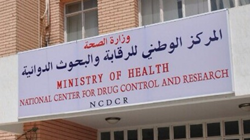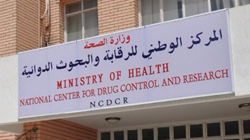Iraq Joins USP in Global Program Regarding Medicine Quality Testing


Rockville, MD (PRWEB) October 30, 2014
The National Center for Drug Control and Research (NCDCR) of Iraq is the newest participant in a U.S. Pharmacopeial Convention (USP) program designed to assist developing countries improve medicine quality.
“Joining USP’s Technical Assistance Program is an important step for increasing Iraq’s capacity to ensure the safety and efficacy of medicines for its people,” said Ahmed Al-shather, Ph.D., director of NCDCR. “A large part of protecting the health of Iraq’s citizens is making sure that good quality medicines are accessible.”
USP’s Technical Assistance Program (TAP) provides participating nations with public written standards, associated reference standards (very pure physical samples used as reference chemicals) and the technical training needed to test the quality of pharmaceutical products. TAP also provides training on screening for counterfeit and substandard medicines in the market.
According to Patrick Lukulay, Ph.D., vice president of USP’s global health impact programs, “TAP was developed by USP to provide tools for quality testing that would help increase the capacity of developing countries with limited resources. By strengthening its own internal capacity for monitoring medicine quality, each nation participating in TAP can improve access to good quality medicine, reduce the burden of disease and, ultimately, promote public health.”
With only 10% of its medicine supply manufactured locally, Iraq is heavily reliant on imported medicines. As the national quality control laboratory of Iraq, NCDCR is responsible for conducting physical, chemical and biological tests on drugs to ensure their quality, regardless of whether these products come from domestic or international sources.
USP and other pharmacopeias typically sell reference and written quality standards for use by pharmaceutical manufacturers and quality control laboratories. National quality control laboratories with limited resources may not have access to up-to-date documented standards and associated materials needed for effective quality testing. The USP Technical Assistance Program is intended to address this.
TAP began in 2011 with just five countries in Africa—Ethiopia, Ghana, Kenya, Senegal, and Sierra Leone—and since then has expanded to include more than 35 countries in Africa, Asia, and Latin America and the Caribbean. For more information about TAP and USP’s other global health initiatives, visit USP’s website.
Find More Physics Press Releases